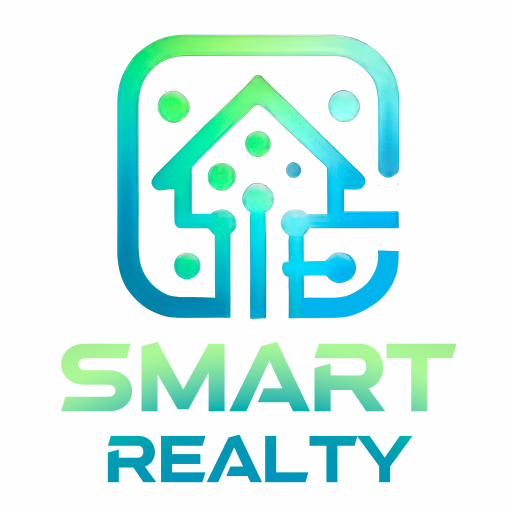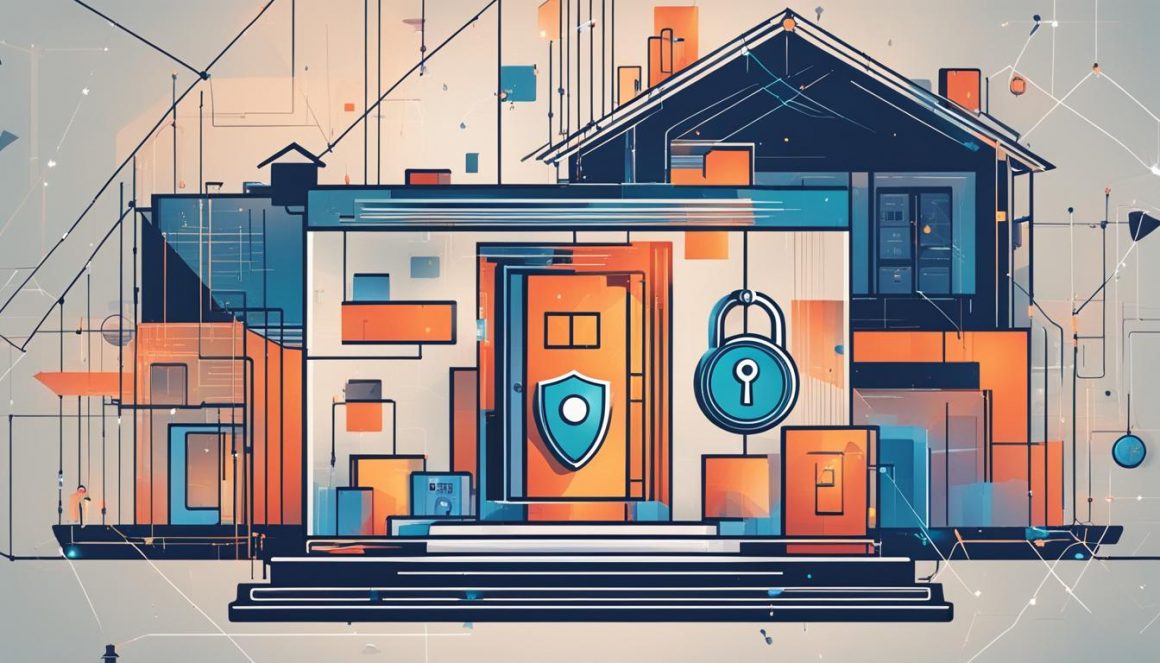The integration of smart contracts powered by blockchain technology has ushered in a new era of automated and secure agreements. But when you combine the power of Artificial Intelligence (AI) with these smart contracts, you can truly revolutionize property transactions. AI-driven smart contracts analyze data, make informed decisions, and automate actions, providing a unique blend of automation and security.
In this article, we will delve into the concept of AI-driven smart contracts and explore their potential applications in the real estate industry. From analyzing data to executing automated actions, AI-driven smart contracts have the potential to transform property transactions in ways we never thought possible.
Key Takeaways:
- AI-driven smart contracts combine the power of blockchain technology and Artificial Intelligence.
- These contracts can analyze data, make intelligent decisions, and automate actions.
- AI-driven smart contracts have applications in various industries, including real estate.
- They can revolutionize property transactions by streamlining processes and enhancing security.
- Embracing AI-driven smart contracts can provide a competitive edge and transform the way we conduct business.
Understanding AI-Driven Smart Contracts
AI-driven smart contracts represent a significant advancement beyond traditional smart contracts by integrating artificial intelligence algorithms into their execution. These contracts have the capability to analyze various types of data, leveraging data analysis techniques to make intelligent decisions based on the insights obtained. In addition, they are designed to automatically execute predefined actions when specific criteria are met.
This fusion of AI and smart contracts combines the inherent transparency and immutability of blockchain technology with the ability of AI to interpret and adapt to data. As a result, AI-driven smart contracts enable more complex and dynamic contract execution, facilitating automated decision-making based on real-time data analysis.
The power of AI-driven smart contracts lies in their ability to analyze diverse sets of data, ranging from financial transactions and market trends to customer behavior and environmental factors. By leveraging sophisticated algorithms, these contracts can extract meaningful insights and identify patterns within the analyzed data, enabling accurate and informed decision-making.
“AI-driven smart contracts enable automated decision-making based on real-time data analysis, leveraging the power of AI algorithms to interpret and adapt to data.”
Automated actions are a key feature of AI-driven smart contracts. When specific conditions or criteria are met, these contracts can autonomously trigger predefined actions, eliminating the need for manual intervention. This automation streamlines processes, reduces delays, and mitigates the potential for human error.
The synergy between AI and smart contracts empowers organizations across various industries to enhance their operations, optimize efficiency, and reduce costs. From supply chain management and finance to healthcare and real estate, the applications of AI-driven smart contracts are vast.
Comprehensively understanding the concept of AI-driven smart contracts sets the stage for exploring their practical applications in more detail. The following sections will highlight specific industries where these contracts can revolutionize operations and yield significant benefits.
Applications of AI-Driven Smart Contracts
AI-driven smart contracts have the potential to revolutionize multiple industries. In the insurance industry, they can automate claims processing and verify claims based on predefined criteria. This streamlines the entire process, reducing paperwork, and increasing the speed and accuracy of settlements.
In supply chain management, AI-driven smart contracts enable real-time tracking of goods and automate payments based on predefined quality standards. This ensures transparency, reduces the risk of fraud, and improves efficiency throughout the supply chain.
In healthcare, AI-driven smart contracts can facilitate secure data sharing while ensuring privacy and security. With the ability to automatically enforce access controls and permissions, these contracts enable seamless sharing of medical records and accelerate healthcare research and collaboration.
In real estate transactions, AI-driven smart contracts automate the purchase and sale of properties, reducing the need for intermediaries such as real estate agents and lawyers. This leads to faster and more cost-effective transactions, benefiting both buyers and sellers.
In finance, AI-driven smart contracts have the power to optimize investment strategies and assess creditworthiness in real-time. By leveraging AI algorithms to analyze market trends and evaluate risk factors, these contracts can make informed investment decisions and provide instant credit assessments, enhancing the efficiency and accuracy of financial transactions.
Overall, AI-driven smart contracts are poised to transform the way industries operate by increasing automation, efficiency, and security. With their wide-ranging applications in insurance, supply chain management, healthcare, real estate transactions, and finance, these contracts have the potential to drive innovation and deliver tangible benefits to businesses and consumers alike.
Real-World Examples of AI-Driven Smart Contracts
Real-world examples vividly demonstrate the transformative power of AI-driven smart contracts across various industries. These examples highlight the significant benefits and efficiencies that can be achieved by harnessing the potential of this cutting-edge technology.
1. Insurance Claims Processing
The integration of AI-driven smart contracts in the insurance industry has revolutionized claims processing. Traditionally, it would take days or even weeks to process and verify insurance claims manually. However, with the implementation of AI-driven smart contracts, this time-consuming process can now be reduced to a matter of minutes.
By leveraging AI algorithms to analyze data and validate claims against predefined criteria, insurers can automate the entire claims process. This not only speeds up the settlement process but also reduces the risk of errors and fraudulent claims. The result is improved customer satisfaction and substantial cost savings for insurance companies.
2. Supply Chain Optimization
In the realm of supply chain management, AI-driven smart contracts play a crucial role in optimizing operations and reducing inefficiencies. Through real-time tracking and automated actions, these contracts can significantly minimize product damage and loss.
By integrating smart contracts with IoT devices and sensors, supply chain stakeholders can ensure that goods are transported and stored under optimal conditions. If any deviations occur from the predefined parameters, the smart contracts can automatically trigger appropriate actions, such as rerouting shipments or adjusting storage conditions. This streamlined process not only saves costs but also enhances overall supply chain efficiency.
3. Healthcare Data Sharing
With concerns surrounding data privacy and security, AI-driven smart contracts offer a groundbreaking solution for secure healthcare data sharing. These contracts can facilitate the exchange of patient information between healthcare providers, researchers, and insurers while ensuring compliance with privacy regulations.
By using encrypted blockchain technology, AI-driven smart contracts provide a secure and immutable platform for sharing medical data. Patients can grant controlled access to their health records, empowering healthcare providers to make informed decisions while maintaining patient confidentiality. This streamlined data sharing process also eliminates redundant procedures, saving valuable time and resources.
4. Real Estate Transactions
In the realm of real estate, AI-driven smart contracts have the potential to streamline and expedite property transactions. These contracts automate the buying and selling process, eliminating the need for intermediaries and reducing transaction times from weeks to days.
By leveraging AI algorithms to analyze property details and validate buyer qualifications, smart contracts can facilitate faster, more efficient transactions. The automation of tasks such as title searches, escrow payments, and property inspections ensures accuracy, transparency, and security throughout the process. Consequently, this technology holds the potential to increase market activity and reduce costs for all parties involved.
Conclusion
The integration of AI into smart contracts has revolutionized the real estate industry, bringing about a transformation in efficiency, security, and customer-centric experiences. By automating tasks, analyzing data, and making intelligent decisions, AI-driven smart contracts facilitate faster transactions, generate cost savings, and enhance user experiences.
The potential of AI-driven smart contracts extends beyond real estate, with applications across various industries. Embracing this technology can provide businesses with a competitive edge and position them at the forefront of their respective fields. With the ability to automate processes, analyze complex data sets, and execute actions seamlessly, AI Real Estate Smart Contracts have the power to optimize transactions and streamline operations across the board.
By leveraging AI Real Estate Smart Contracts, companies can unlock new levels of efficiency, reducing the time and resources required for traditional contract execution. Moreover, the enhanced security offered by blockchain technology ensures trusted and tamper-proof agreements, safeguarding the interests of all parties involved.
In a customer-centric industry like real estate, AI-driven smart contracts create seamless and personalized experiences, delivering value and satisfaction to clients. They enable faster property transactions, eliminate intermediaries, and minimize potential errors or information gaps. As the real estate landscape continues to evolve, embracing AI Real Estate Smart Contracts becomes crucial for staying competitive and meeting the ever-changing demands of customers.
FAQ
What are AI-driven smart contracts?
AI-driven smart contracts are contracts that combine artificial intelligence algorithms with blockchain technology. They can analyze data, make intelligent decisions, and automatically execute actions based on predefined criteria.
What industries can benefit from AI-driven smart contracts?
AI-driven smart contracts have the potential to revolutionize multiple industries, including insurance, supply chain management, healthcare, real estate transactions, and finance.
How can AI-driven smart contracts improve insurance processes?
AI-driven smart contracts can automate claims processing and verify claims based on predefined criteria. This can significantly reduce processing time, leading to cost savings and improved customer satisfaction.
In what way can AI-driven smart contracts optimize supply chain management?
AI-driven smart contracts can track goods in real-time and automate payments based on quality standards. This can reduce product damage and loss, resulting in cost savings and more efficient operations.
What benefits can AI-driven smart contracts bring to healthcare?
AI-driven smart contracts can facilitate secure data sharing while ensuring privacy and security. This technology can prevent data breaches and save billions of dollars annually.
How can AI-driven smart contracts impact real estate transactions?
In real estate, AI-driven smart contracts can automate the purchase and sale of properties, reducing the need for intermediaries. This can lead to faster transactions, increased market activity, and reduced costs.
What advantages do AI-driven smart contracts offer in finance?
AI-driven smart contracts can optimize investment strategies and assess creditworthiness in real-time. This can help finance professionals make informed decisions and improve overall efficiency.
What are some real-world examples of AI-driven smart contracts?
Real-world examples include the reduction of insurance claims processing time from days or weeks to minutes, the significant reduction of product damage and loss in supply chain management, the prevention of data breaches in healthcare, and the faster transaction times in real estate.
How can AI-driven smart contracts enhance efficiency and security in real estate?
AI-driven smart contracts automate tasks, analyze data, and make intelligent decisions, leading to faster transactions, cost savings, and improved user experiences. This technology enhances security by leveraging the transparency and immutability of blockchain.
What is the potential of AI-driven smart contracts?
AI-driven smart contracts have the potential to revolutionize various industries by combining the power of artificial intelligence and blockchain technology. Embracing this technology can provide a competitive edge and position businesses at the forefront of their industries.

